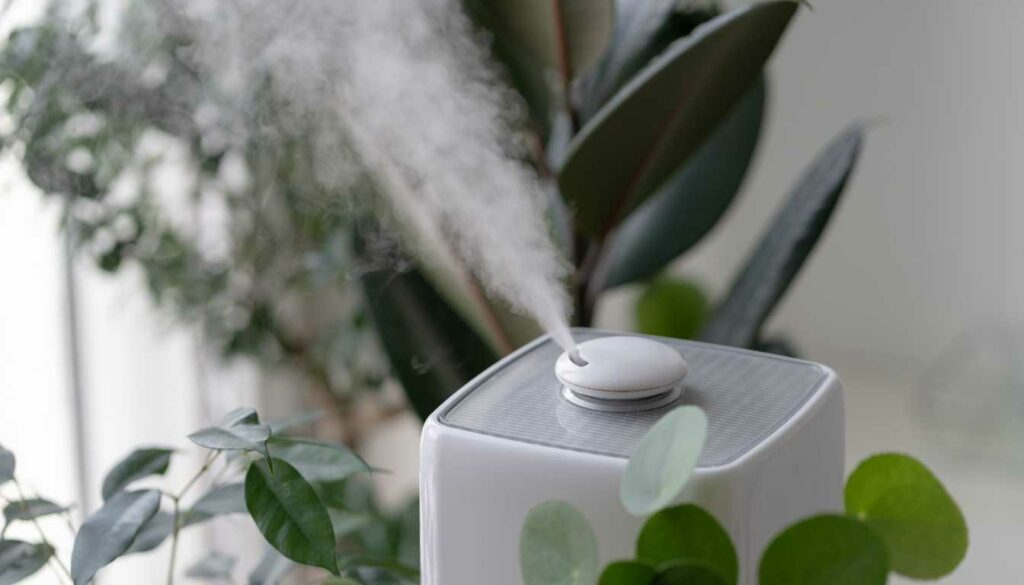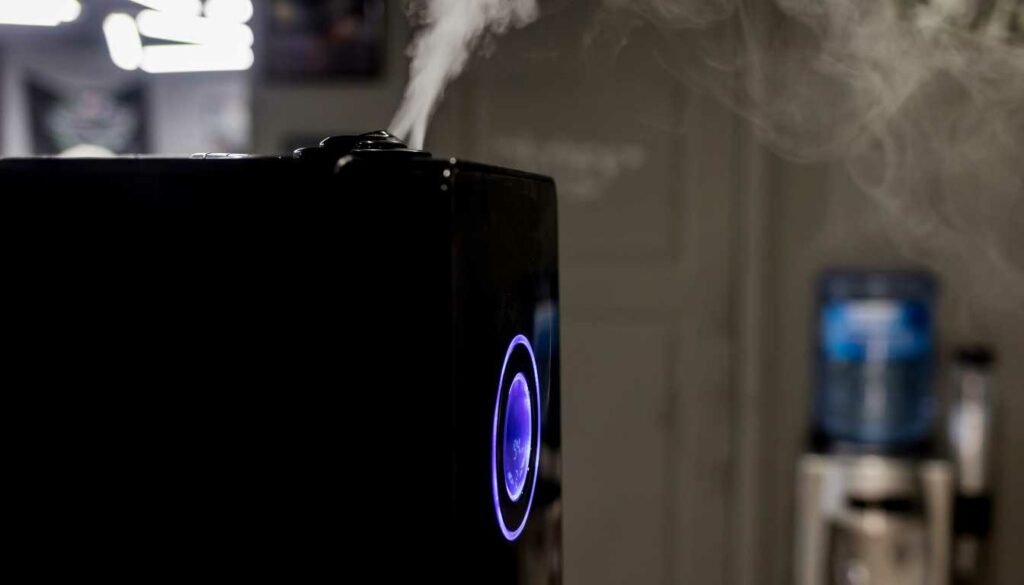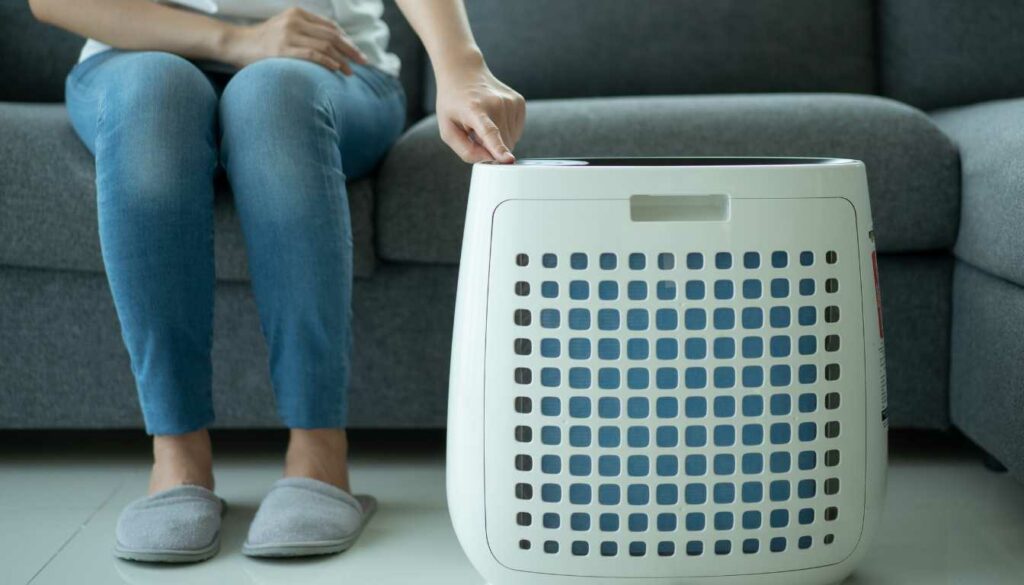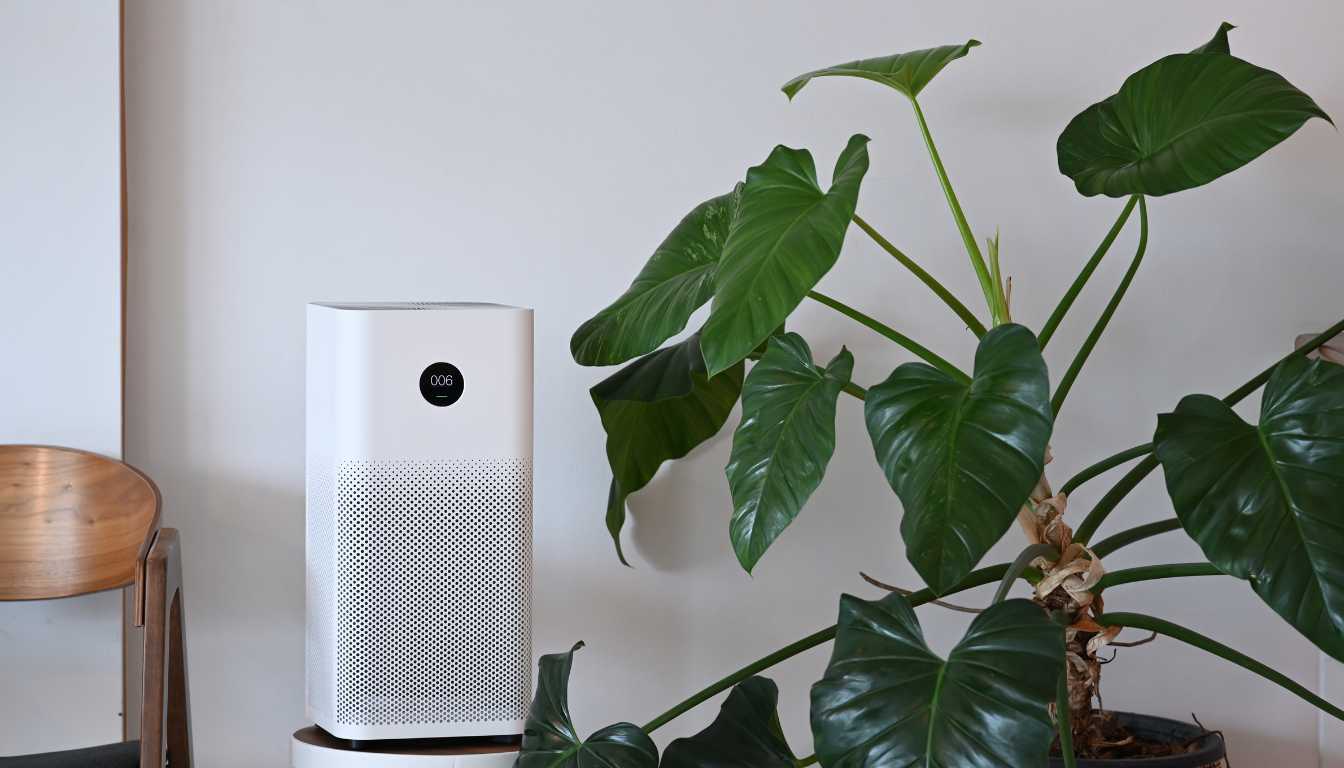Air purifiers are some of the most satisfying inventions known to mankind. Being able to breathe fresh air is something that you absolutely cannot substitute for anything. Now imagine if that beautiful device were smart. A smart device… You get what I mean.
You may be asking yourself if you need one. Only makes sense. That’s what this article aims to answer. Here we will discuss what smart air purifiers are, what the pros and cons are and whether you truly need one or not.
A smart air purifier uses advanced technology to monitor and improve indoor air quality. Equipped with sensors, it detects pollutants, adjusts settings automatically, and can be controlled remotely via a mobile app. Whether you need one depends on factors like allergies, pollution levels, and personal comfort, making it beneficial for enhanced air quality control in your home.
Table of Contents
ToggleHow does a smart air purifier work?
A smart air purifier employs sensors to continually assess air quality, measuring particles, Volatile Organic Compounds (VOCs), and other pollutants. Integrated with advanced algorithms, it automatically adjusts its purification settings based on real-time data.
This may involve varying fan speeds or activating specific filtration modes to address specific contaminants. Users can monitor and control the device remotely through a dedicated mobile app, receiving alerts and insights on air quality.
Smart air purifiers often feature compatibility with voice assistants and smart home systems, enhancing convenience. Overall, these devices leverage technology to optimize air purification, providing efficient and tailored solutions for improved indoor air quality.
And while you breathe cool air, you might want to glance over at your smart planter. Green things are nice.
When do you need a smart air purifier?
The decision to use a smart air purifier or smart air purifier depends on various factors related to your indoor environment, health considerations, and personal preferences. Here are situations where a smart air purifier might be beneficial:
High Allergen Levels: If you suffer from allergies triggered by pollen, pet dander, dust mites, or mold spores, a smart air purifier with effective filtration can help reduce allergen levels in your home.

Respiratory Issues: Individuals with respiratory conditions such as asthma or chronic obstructive pulmonary disease (COPD) may benefit from a smart air purifier, especially if it can capture fine particulate matter and pollutants.
Urban Environments: If you live in a city with high levels of outdoor pollution, a smart air purifier can help mitigate the impact of airborne pollutants entering your home.
Smart Home Integration: If you enjoy the convenience of controlling devices through your smartphone or integrating them into a smart home system, a smart air purifier might align with your tech-savvy lifestyle.
Auto-Adjustment Based on Air Quality: Smart air purifiers that can automatically adjust their operation based on real-time air quality data are useful for maintaining optimal indoor air quality without constant manual adjustments.
Monitoring and Insights: If you appreciate having detailed insights into your indoor air quality and want to monitor changes over time, a smart air purifier with monitoring features and a mobile app may be valuable.
Specific Concerns (Odors, Viruses): If you have specific concerns like odors, volatile organic compounds (VOCs), or a desire to neutralize airborne viruses, choose a smart air purifier with features tailored to address these issues.
And once you’re feeling all fresh from the air, kick back with a glass of red wine. You’ll likely need a wine aerator for that, though…
What are the different types of air purifiers
There are several different types of air purifiers that can all be have smart functionality. It may be worthwhile familiarise ourself with all the different technologies used in air purifiers.
HEPA (High-Efficiency Particulate Air) Filters
Use a dense paper or fabric filter to capture particles like dust, pollen, and pet dander.
- Pro: Highly effective against particles as small as 0.3 microns.
- Con: Doesn’t capture gases or odors; needs frequent filter replacement.

Activated Carbon Filters
Utilize a porous carbon material to adsorb gases, odors, and volatile organic compounds (VOCs).
- Pro: Excellent for removing odors and gases.
- Con: Less effective against particulate matter; requires periodic replacement.
UV-C Purifiers
Employ ultraviolet-C light to neutralize or kill bacteria, viruses, and other microorganisms.
- Pros: Effective at preventing the spread of airborne diseases.
- Cons: Less effective against larger particles; doesn’t remove particles; may produce ozone.
Ionic Air Purifiers
Emit negatively charged ions that attach to positively charged particles, causing them to fall.
- Pros: Effective against small particles; can cover large areas.
- Cons: Some models produce ozone; may create a residue on surfaces.
Ozone Generators
Release ozone molecules to neutralize odors and kill bacteria and mold.
- Pros: Powerful against strong odors.
- Cons: Can be harmful in high concentrations; controversial use; not recommended for occupied spaces.
Photocatalytic Oxidation (PCO) Purifiers
Use UV light to activate a catalyst, which reacts with pollutants like VOCs, mold, and bacteria.
- Pros: Effective against a range of pollutants.
- Cons: Some models may produce ozone; periodic maintenance required for catalyst replacement.
Hybrid Air Purifiers
Combine multiple technologies (HEPA, activated carbon, UV-C, etc.) for comprehensive air purification.
- Pros: Target a wide range of pollutants; comprehensive solution.
- Cons: Higher upfront cost; ongoing maintenance costs for multiple filters.
The choice of air purifier depends on the specific pollutants you want to address and your budget. HEPA filters excel at capturing particles, while activated carbon filters are great for odors and gases.
UV-C purifiers combat microorganisms, ionic purifiers target small particles, and ozone generators neutralize strong odors. PCO purifiers offer versatility, and hybrids provide a comprehensive solution but may come with higher costs.
Consider your needs, potential side effects, and maintenance requirements when selecting an air purifier for your space. Regular maintenance is crucial for optimal performance, regardless of the type chosen.
Do you need a smart air purifier?
Whether you need a smart air purifier depends on your preferences and lifestyle. Smart air purifiers offer remote control, scheduling, and integration with smart home systems, providing convenience.
If you value the ability to monitor and control your purifier from your smartphone or through voice commands, a smart model may be beneficial.

However, if you prefer a straightforward and cost-effective solution without the added technology features, a traditional air purifier may suffice. Evaluate your priorities and decide based on your specific needs and comfort with smart technology.
What smart air purifier should I buy?
If you’re in the market for an air purifier, which would make sense, because you’re reading this article, I’ve managed to fish out 2 great recommendations. One is more budget friendly and one a little more expensive.
LEVOIT Air Purifier
The LEVOIT Air Purifier is a line of air purifiers that are designed to improve indoor air quality by removing pollutants such as dust, allergens, and volatile organic compounds (VOCs). Coming in at a $89.99 price range, offers great value
The purifiers come in various models, including the Core 400S Smart True HEPA Air Purifier, which features VortexAir Technology and voice control compatibility with Amazon Alexa and Google Assistant.
The purifiers are designed to be energy-efficient and quiet, with customizable settings and a range of fan speeds. The LEVOIT Air Purifiers are also designed to be stylish and compact, making them a great addition to any room in your home.
The company offers a range of air purifiers for different room sizes and needs, including models that are suitable for small rooms, medium rooms, and large rooms. The LEVOIT Air Purifiers are a great choice for those looking to improve their indoor air quality and create a healthier living environment.
PuroAir HEPA 14 Air Purifier for Home
The PuroAir HEPA 14 Air Purifier for Home is a high-performance air purifier that is designed to remove fine particulate matter, allergens, and other pollutants from the air. At a price point of $169.00, this is a more expensive option. However, it gets the job done very well.
It features a HEPA 14 filter that captures up to 99.99% of airborne particles, including pet dander, smoke, allergens, dust, odors, and mold.
The air purifier automatically senses pollutants in the air and adjusts its settings to maintain excellent air quality. It is energy-efficient, operates quietly, and is suitable for large rooms up to 1,115 square feet.
The PuroAir HEPA 14 Air Purifier for Home is a popular choice for those looking to improve their indoor air quality and create a healthier living environment.
A smart air purifier is like a smart projector. You might need both. Worth looking into…



